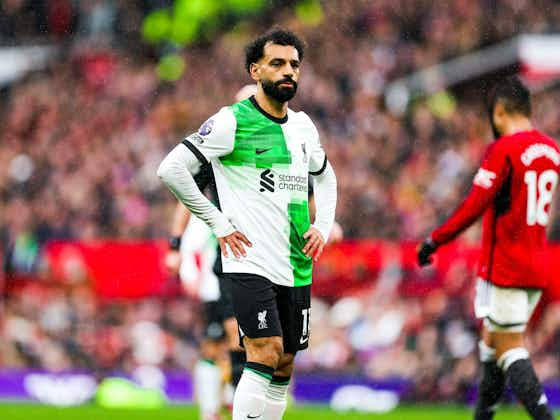Anfield Index
·27. Mai 2024
Journalist: Liverpool Set to Deny Mohamed Salah Olympics Opportunity with Egypt

In partnership with
Yahoo sportsAnfield Index
·27. Mai 2024

The buzz surrounding Mohamed Salah’s potential participation in the upcoming Olympic Games has caught the attention of many, particularly Liverpool fans and pundits alike. As one of the premier players in world football, Salah’s decisions both on and off the pitch are always under scrutiny. David Lynch, speaking on Anfield Index’s ‘Media Matters’ podcast, provided some illuminating insights into the situation, suggesting that while the door hasn’t been closed by Liverpool, the possibility of Salah joining the Egypt squad for the Olympics remains slim.
David Lynch articulates a critical point: “Nobody on Liverpool’s side is shooting it down, but I really struggle to see it happening.” This statement captures the essence of the dilemma. The club holds the power to decide, given that the Olympics is not a FIFA-accredited event. Hence, Liverpool is not obligated to release Salah for the tournament. This control is significant amidst the transitional phase Liverpool is experiencing with the introduction of a new manager and the integration of players returning from other international duties.
“Because of everything that’s going on with the arrival of the new manager and other players away at the Euros and the Copa America, I just think they’ll want to get him in and starting in the best possible way,” Lynch notes. The strategic intent behind Liverpool’s decision-making process is clear. The pre-season period is crucial for establishing team cohesion and integrating tactical plans. Salah, as a key figure in Liverpool’s setup, is vital in the team’s preparation and success for the upcoming season. His involvement in the Olympics could disrupt this crucial preparatory phase.
It’s noteworthy that Salah has had the experience of playing in the Olympics before, during the London 2012 games. While such an experience is enriching, the repetition of this at a crucial juncture in his professional career with Liverpool might not be as beneficial. As Lynch puts it, “He has played in the Olympics before in London 2012, so he has had that experience and I just don’t see the club allowing it.” The precedence and the context of the previous participation make Liverpool’s likely refusal a pragmatic choice rather than a restrictive one.
The debate isn’t merely about a club withholding a player from an international tournament; it’s also about balancing national pride against professional commitments. For Salah, representing Egypt at an event like the Olympics is a matter of immense pride and could further endear him to his compatriots. However, professional football at the club level often requires sacrifices, and in this instance, it might mean missing the Olympics for a more significant cause—contributing to Liverpool’s ambitions and stability.
The situation brings to light broader discussions about the scheduling of international tournaments and the strain they put on players and clubs. The need for a coherent calendar that respects both the international fixtures and club commitments is becoming increasingly crucial as the line between club and country duties becomes increasingly blurred.
In conclusion, while the prospect of Salah lighting up the Olympic stage in Egypt’s colours is an exciting one, the reality of football’s demanding nature and Liverpool’s strategic interests likely mean that fans will have to wait to see their star in international colours at another time. As Lynch aptly summarizes the entire scenario, the balance of probabilities suggests Salah will remain in Liverpool to prepare for the new season rather than heading to Tokyo this summer.
In a sport where club and country tug-of-war is commonplace, Salah’s situation is a stark reminder of the delicate balance players and clubs must maintain to foster both individual and collective success.






























































